Filippo Inzaghi
Filippo Inzaghi

Filippo Inzaghi, commonly known as "Superpippo," is an Italian football manager and former striker. Born on August 9, 1973, Inzaghi enjoyed a successful playing career and has also ventured into coaching.During his playing days, Inzaghi gained a reputation as one of the greatest strikers of his generation. He was nicknamed "Superpippo" and "Alta tensione" by fans and commentators. His younger brother, Simone Inzaghi, also became a football manager and former player.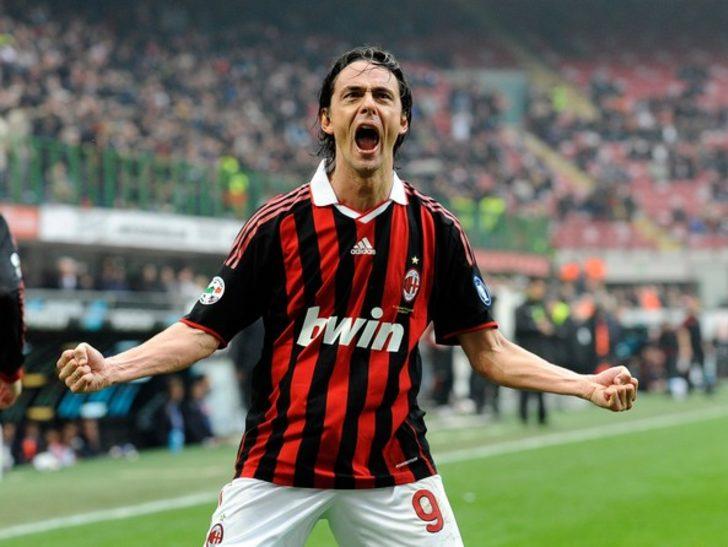
Inzaghi played for several Italian clubs, with notable spells at Juventus and AC Milan. He achieved significant success during his club career, winning two UEFA Champions League titles with AC Milan in 2003 and 2007, along with three Serie A titles (1998, 2004, 2011). Inzaghi is the seventh-highest scorer in Italy, with 313 goals in official matches. Additionally, he ranks as the sixth-highest goal scorer in European club competitions, following players like Cristiano Ronaldo, Lionel Messi, Robert Lewandowski, Raúl, and Karim Benzema. In Milan's history, Inzaghi is the top international goal scorer with 43 goals and holds the record for the most hat-tricks in Serie A with 10./origin-imgresizer.eurosport.com/2014/05/29/1246900-26928850-2560-1440.jpg)
On the international stage, Inzaghi earned 57 caps for the Italy national team from 1997 to 2007, scoring 25 goals. He represented Italy in three FIFA World Cups, winning the 2006 edition, and also participated in UEFA Euro 2000, where he received a runners-up medal.
After retiring as a player, Inzaghi transitioned to coaching. As of the latest information available, he was most recently the manager of Serie A club Salernitana.
Filippo Inzaghi, known for his prolific goal-scoring ability, had his footballing roots in Piacenza. Born on August 9, 1973, he began his career with hometown club Piacenza as a teenager in 1991. However, his initial stint with Piacenza was brief, making only two league appearances before being loaned to Serie C1 side Leffe. During his loan spell at Leffe, Inzaghi showcased his goal-scoring prowess by netting an impressive 13 goals in 21 matches.
Inzaghi moved to Serie B club Hellas Verona, where he continued to impress with 13 goals in 36 league appearances. Following his successful spell with Hellas Verona, Inzaghi returned to Piacenza in Serie B. In his second stint with Piacenza, he made significant contributions, scoring 15 goals in 37 games. His performances played a crucial role in helping Piacenza win Serie B, and Inzaghi established himself as an exciting young prospect in Italian football.In 1995, Inzaghi made the leap to Serie A, joining Parma. Despite scoring only twice in 15 league matches during his debut Serie A season, one of those goals came against his former club, Piacenza, which carried emotional significance for Inzaghi.
In the following season, Inzaghi moved to Atalanta and enjoyed a remarkable campaign. He finished as the Capocannoniere (Serie A's top scorer) with 24 goals, scoring against every team in the league. This prolific scoring form earned him the Serie A Young Footballer of the Year award. Additionally, Inzaghi had the honor of serving as team captain in the last game of the season.During his early years in football, Inzaghi's favorite players were Paolo Rossi and Marco van Basten, both of whom left a lasting impact on his playing style and career.
Filippo Inzaghi continued his journey through Italian football, joining Juventus – his sixth team in seven seasons – for a reported 23 billion lire. This move marked the beginning of a notable period for Inzaghi, as he formed a potent attacking partnership with Alessandro Del Piero and Zinedine Zidane. Under the management of Marcello Lippi and later Carlo Ancelotti, Inzaghi experienced his longest stint with a single team.
During his time with Juventus, Inzaghi achieved significant milestones. He scored two hat-tricks in the UEFA Champions League, against Dynamo Kyiv and Hamburger SV, making him the first player to accomplish this feat. His first season with the club saw him contribute two goals in Juventus' 3-0 victory over Vicenza in the 1997 Supercoppa Italiana. In Serie A, Inzaghi scored 18 goals during the 1997–98 season, including a decisive hat-trick against Bologna that secured the Scudetto for Juventus. Additionally, he netted six goals in the Champions League, helping Juventus reach the final, where they were ultimately defeated 1–0 by Real Madrid.
The following season (1998–99) was less successful for Juventus, as they finished seventh in Serie A and were defeated in the Supercoppa Italiana by Lazio. Despite these setbacks, Inzaghi managed to score 20 goals in all competitions, ending the season as the club's top scorer. In the Champions League, he scored two early goals in the semi-finals against Manchester United, but Juventus was eventually eliminated.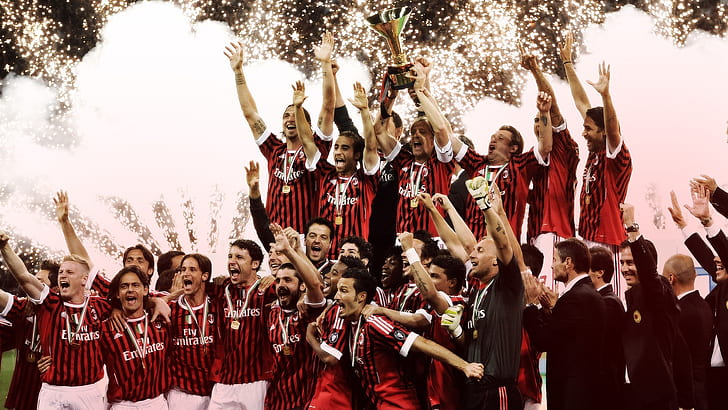
Inzaghi played a pivotal role in Juventus winning the 1999 UEFA Intertoto Cup, scoring five goals in the semi-finals against Rostov and two in the finals against Rennes. This triumph qualified Juventus for the UEFA Cup. In Serie A, Inzaghi contributed 15 goals, helping Juventus secure a second-place finish, narrowly missing out on the title to Lazio.
The subsequent season saw Inzaghi continue his goal-scoring prowess, with 11 goals in Serie A and five goals in the UEFA Champions League, including a memorable hat-trick against Hamburger SV.
Despite his individual success, Juventus finished second in the league for the second consecutive season, and the partnership between Inzaghi and Del Piero faced challenges, characterized by a lack of understanding and strained relations on and off the pitch.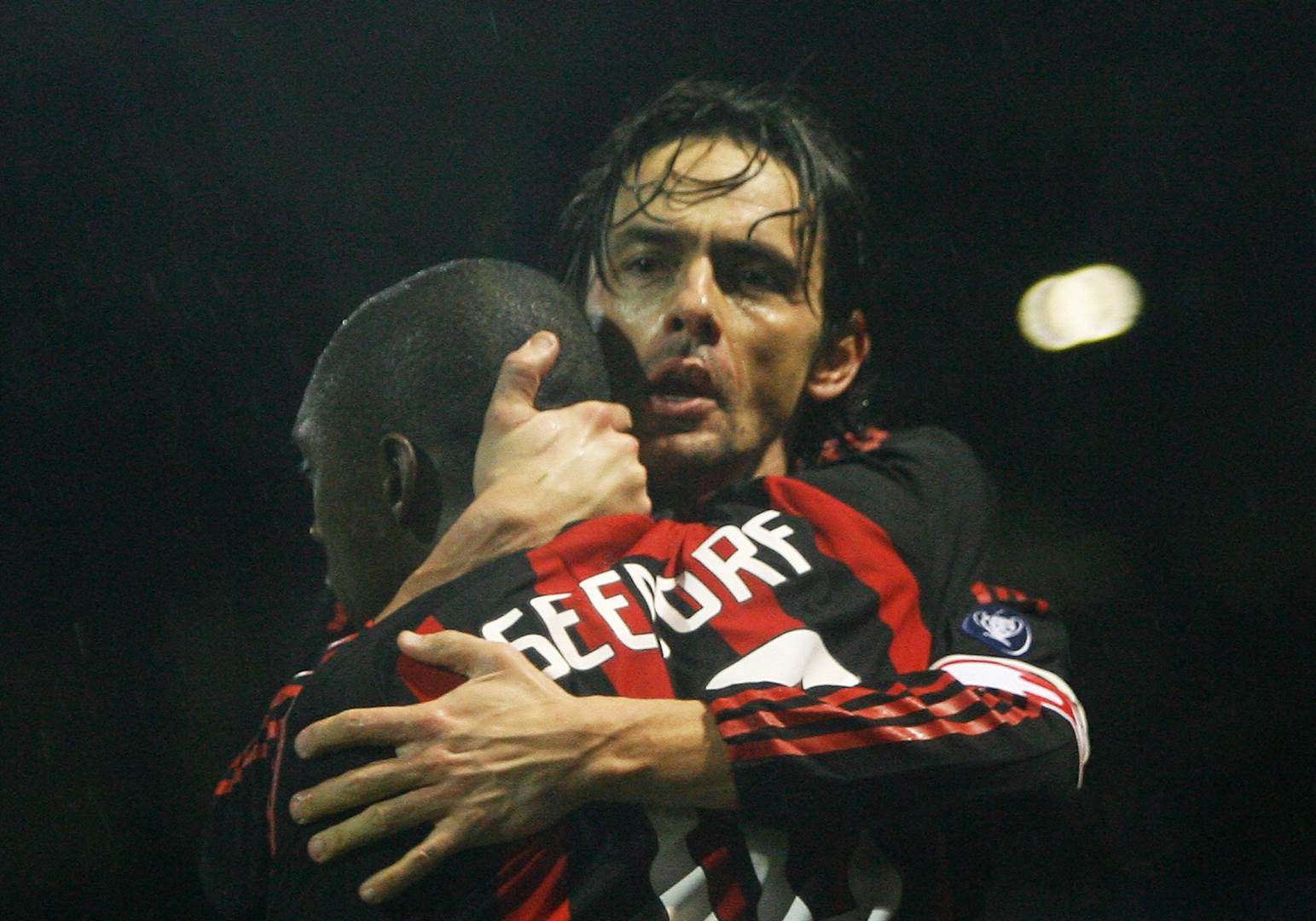
Despite his prolific goal-scoring record for Juventus, Filippo Inzaghi found himself benched in favor of David Trezeguet. As a result, on 2 July 2001, Inzaghi made a significant move to AC Milan for a reported 70 billion lire, or a cash sum of 45 billion lire plus Cristian Zenoni. The reported transfer fee by Sky Sports was £17 million for the 2001–02 campaign, as orchestrated by coach Fatih Terim.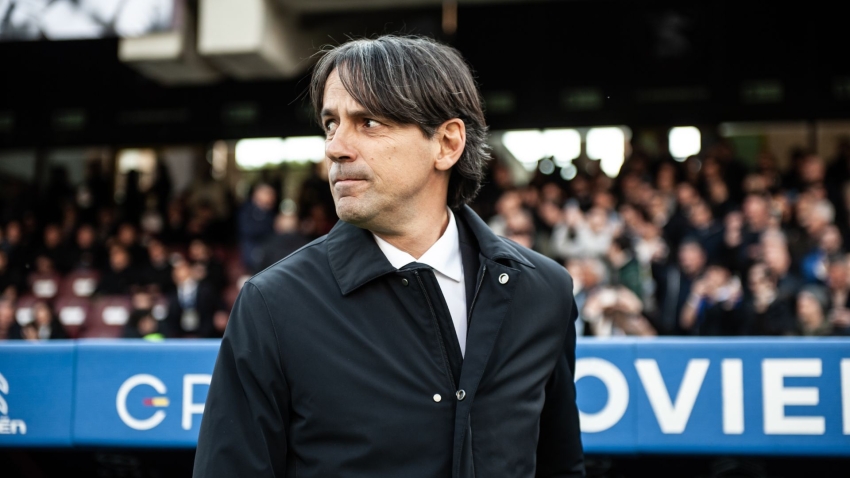
While Juventus claimed a capital gain of €31.1 million from Inzaghi's sale, emphasizing the financial benefit to the club, the actual transfer fee was believed to exceed that figure. Unfortunately, Inzaghi faced an early setback at Milan, sustaining a knee injury that sidelined him for the first half of the season. Upon his return, he formed a formidable goal-scoring partnership with Andriy Shevchenko under the management of Carlo Ancelotti.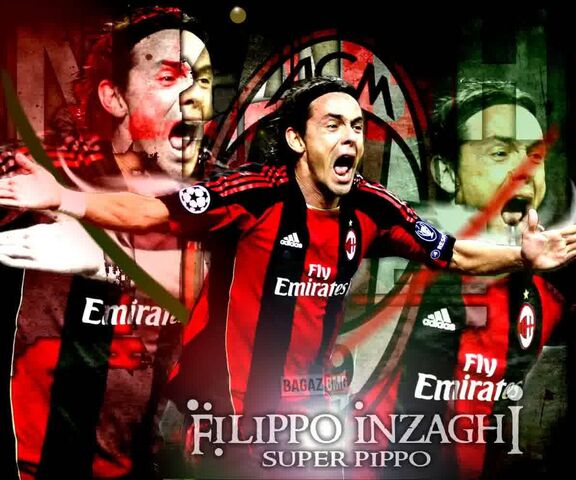
Inzaghi went on to enjoy considerable success with AC Milan, winning several trophies. The highlights of his Milan career included the 2002–03 UEFA Champions League, where Milan defeated his former team Juventus in the final on penalties. He also contributed to winning the 2002–03 Coppa Italia, scoring in a 2–2 draw in the second leg, the 2003 UEFA Super Cup, the 2004 Supercoppa Italiana, and the 2003–04 Serie A title.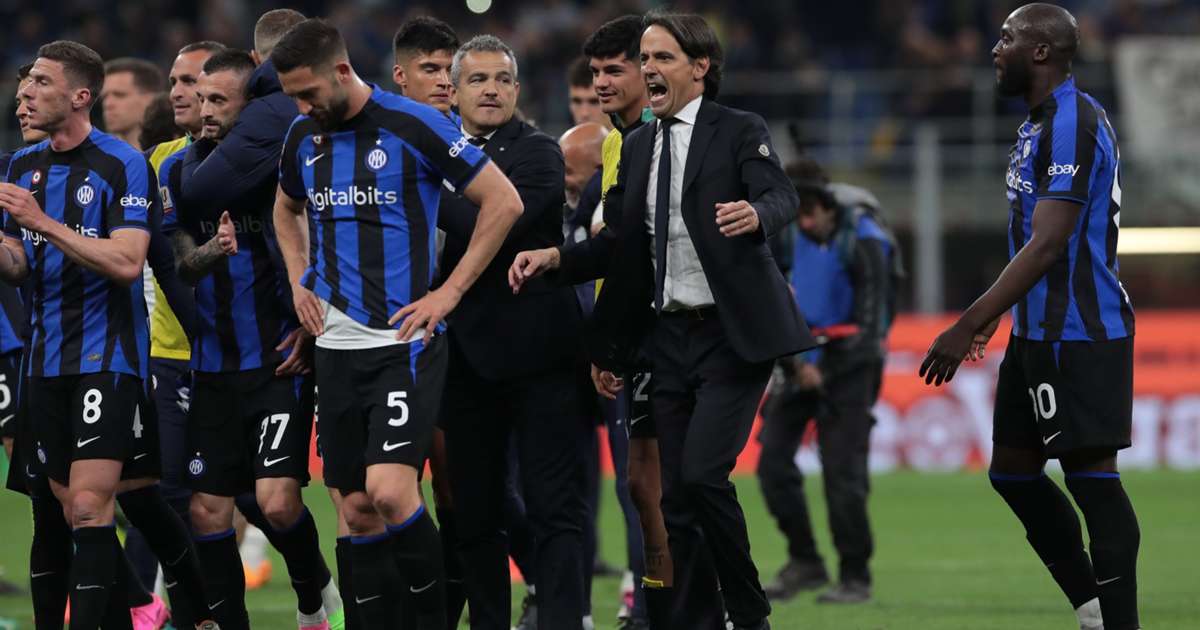
During the 2002–03 Champions League campaign, Inzaghi showcased his goal-scoring prowess by achieving his record third Champions League hat-trick against Deportivo de La Coruña in the Group Stage. He also scored a crucial goal in the quarter-finals against Ajax, totaling 12 European goals in that season. In November 2004, Inzaghi signed a contract extension with AC Milan, solidifying his commitment to the club.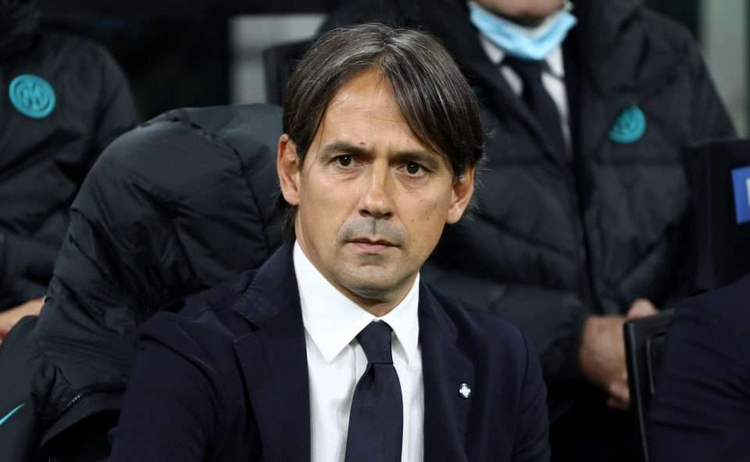
References
- "2006 FIFA World Cup Germany: List of Players: Italy" (PDF). FIFA. 21 March 2014. p. 15. Archived from the original (PDF) on 10 June 2019.
- ^ "Filippo Inzaghi". A.C. Milan. Archived from the original on 10 February 2007. Retrieved 28 May 2021.
- ^ See inzago Archived 23 September 2015 at the Wayback Machine in Dizionario italiano multimediale e multilingue d'ortografia e di pronunzia. His surname is often mispronounced as [inˈdzaːɡi].
- ^ "Ranked! The 101 greatest football players of the last 25 years: full list". FourFourTwo (253 ed.). 13 February 2018. Retrieved 22 December 2023.
- ^ "Inzaghi e i suoi idoli: 'Ronaldo? Peccato il ritiro'" [Inzaghi and his idols: 'Ronaldo? It's a shame he's retired] (in Italian). Calciomercato. 7 March 2011. Retrieved 25 October 2015.
- ^ Francesco Oddi (28 May 2014). "Inzaghi, dopo Filippo tocca a Simone? La Lazio pensa a lui per la panchina" [Inzaghi, after Filippo is it Simone's turn? Lazio have him in mind as coach]. La Gazzetta dello Sport (in Italian). Retrieved 25 October 2015.
- a b "FACTBOX-New AC Milan coach Filippo Inzaghi". Eurosport. 9 June 2014. Retrieved 25 October 2015.
- a b c d e f g h i "Filippo Inzaghi". fourfourtwo.com. Four Four Two. 9 January 2008. Retrieved 17 March 2015.
- a b c d e f g "Filippo Inzaghi". UEFA.com. Retrieved 25 October 2015.
- a b "E' già il Milan di Inzaghi". La Gazzetta dello Sport (in Italian). 2 July 2001. Retrieved 8 March 2010.


































































